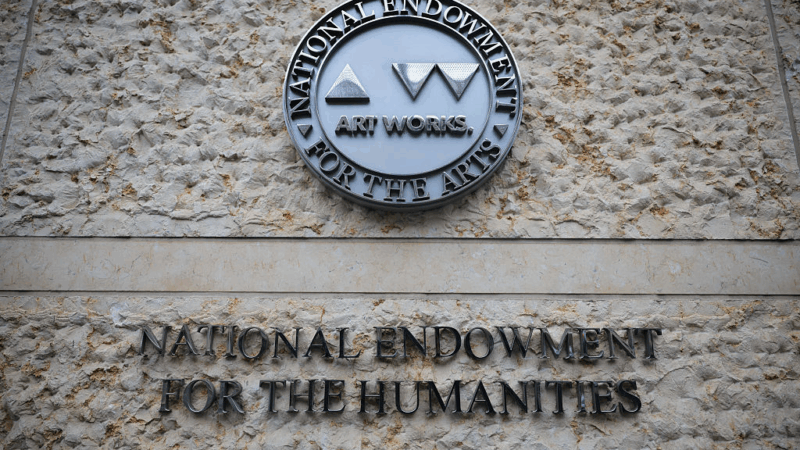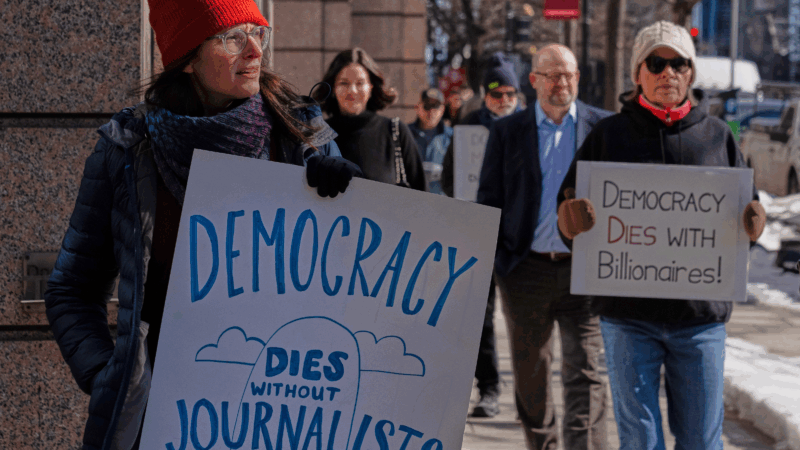Federal judge rules cuts to humanities grants were ‘unlawful’
A federal judge has ruled that the government’s abrupt elimination of humanities grants previously approved by Congress was “unlawful” and that a lawsuit brought by humanities groups can move forward.
In April, the Department of Government Efficiency (DOGE), terminated grants from the National Endowment for the Humanities to thousands of groups across the country including humanities councils, museums, historic sites, archives, libraries, educators and media outlets.
In May, Oregon Humanities and the Federation of State Humanities Councils sued the endowment and DOGE, alleging the sudden grant cuts were an “attempted destruction, spearheaded by DOGE, of the congressionally established federal-state partnership.”
In his decision, U.S. District Judge Michael H. Simon wrote that the councils were “likely to succeed on their claim that the withholding of the funds at issue in this case is unconstitutional.” He added, “The United States Constitution exclusively grants the power of the purse to Congress, not the President.”
Simon also wrote that, “Federal funding for the arts and humanities has enjoyed bipartisan support for decades, with Congress continuing to strengthen the statutes governing NEH and provide stable funding generation after generation.”
In a statement, Phoebe Stein, president of the Federation of State Humanities Councils, called the judge’s ruling “excellent” but cautioned that “humanities councils are still operating without their Congressionally appropriated funds, and many have already laid off staff and cancelled vital programs as a result.”
Adam Davis, executive director of Oregon Humanities, said the ruling is “motivating” and “one step — among many that are needed — in the large, ongoing endeavor to knit our communities and the country closer together.”
In July, a New York federal court similarly found that the government violated the law when it canceled humanities grants that had already been awarded. It said that the grants should be reinstated until after the case has been tried.
The National Endowment for the Humanities has not yet responded to NPR’s request for comment.
Jennifer Vanasco edited this story.
Pentagon says it’s cutting ties with ‘woke’ Harvard, ending military training
Amid an ongoing standoff between Harvard and the White House, the Defense Department said it plans to cut ties with the Ivy League — ending military training, fellowships and certificate programs.
‘Washington Post’ CEO resigns after going AWOL during massive job cuts
Washington Post chief executive and publisher Will Lewis has resigned just days after the newspaper announced massive layoffs.
In this Icelandic drama, a couple quietly drifts apart
Icelandic director Hlynur Pálmason weaves scenes of quiet domestic life against the backdrop of an arresting landscape in his newest film.
After the Fall: How Olympic figure skaters soar after stumbling on the ice
Olympic figure skating is often seems to take athletes to the very edge of perfection, but even the greatest stumble and fall. How do they pull themselves together again on the biggest world stage? Toughness, poise and practice.
They’re cured of leprosy. Why do they still live in leprosy colonies?
Leprosy is one of the least contagious diseases around — and perhaps one of the most misunderstood. The colonies are relics of a not-too-distant past when those diagnosed with leprosy were exiled.
This season, ‘The Pitt’ is about what doesn’t happen in one day
The first season of The Pitt was about acute problems. The second is about chronic ones.







